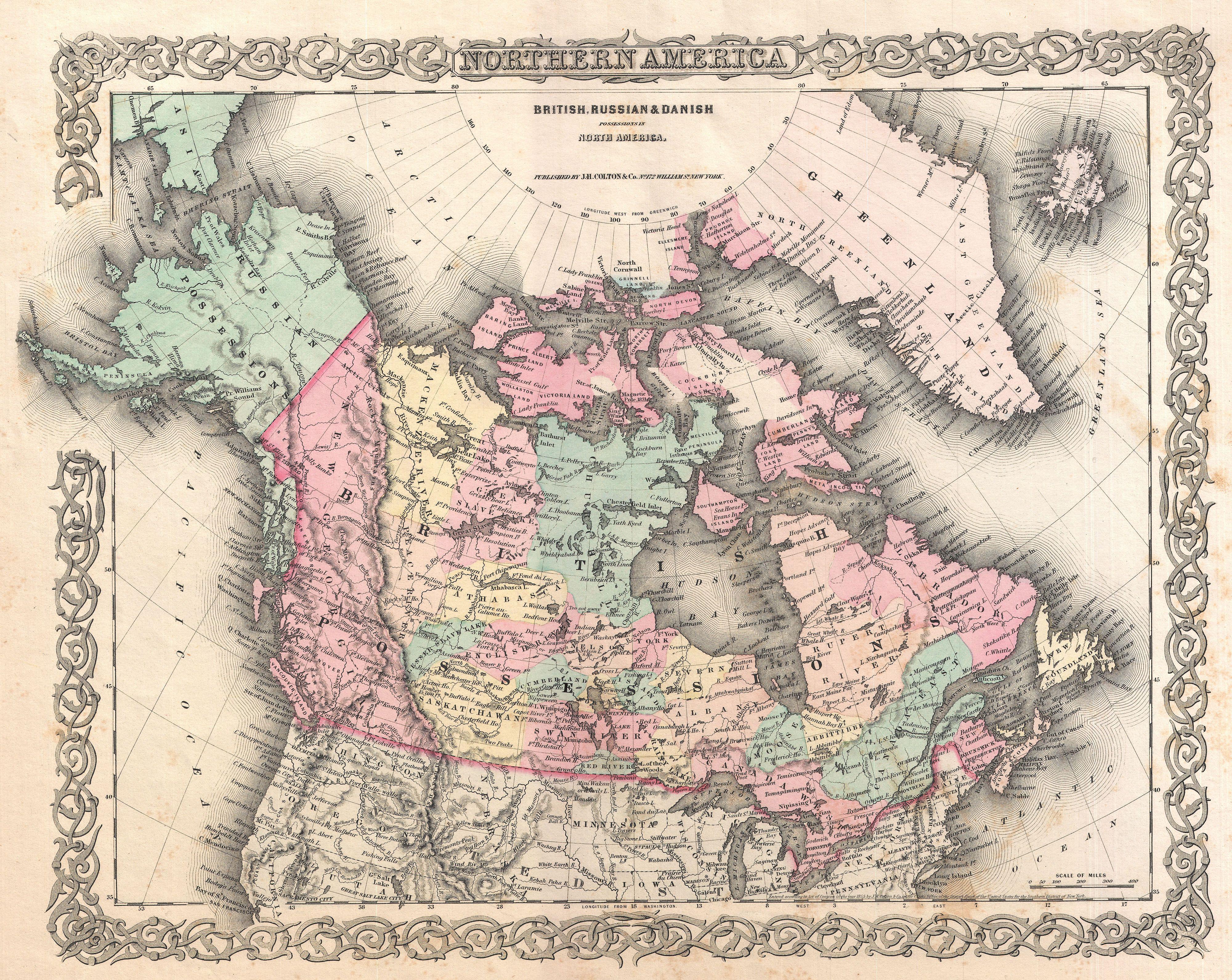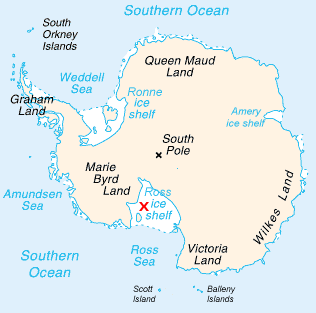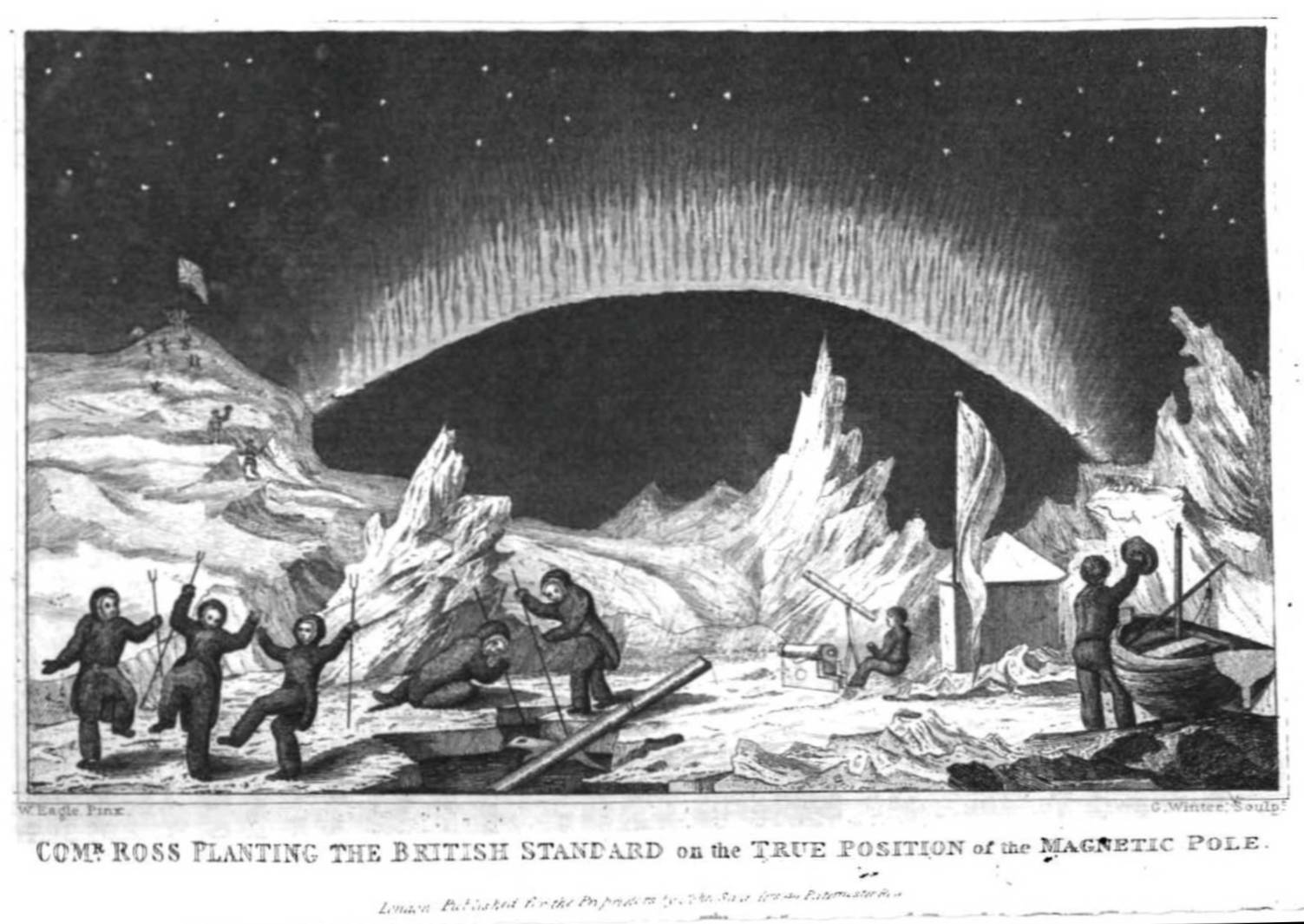|
1841
Events January–March * January 20 – Charles Elliot of the United Kingdom, and Qishan of the Qing dynasty, agree to the Convention of Chuenpi. * January 26 – Britain occupies Hong Kong. Later in the year, the first census of the island records a population of about 7,500. * January 27 – The active volcano Mount Erebus in Antarctica is discovered, and named by James Clark Ross. * January 28 – Ross discovers the "Victoria Barrier", later known as the Ross Ice Shelf. On the same voyage, he discovers the Ross Sea, Victoria Land and Mount Terror. * January 30 – A fire ruins and destroys two-thirds of the villa (modern-day city) of Mayagüez, Puerto Rico. * February 4 – First known reference to Groundhog Day in North America, in the diary of a James Morris. * February 10 – The Act of Union (''British North America Act'', 1840) is proclaimed in Canada. * February 11 – The two colonies of the Canadas are merged, into the United Province of Canada. * February 1 ... [...More Info...] [...Related Items...] OR: [Wikipedia] [Google] [Baidu] |
United Province Of Canada
The Province of Canada (or the United Province of Canada or the United Canadas) was a British colony in North America from 1841 to 1867. Its formation reflected recommendations made by John Lambton, 1st Earl of Durham, in the Report on the Affairs of British North America following the Rebellions of 1837–1838. The Act of Union 1840, passed on 23 July 1840 by the British Parliament and proclaimed by the Crown on 10 February 1841, merged the Colonies of Upper Canada and Lower Canada by abolishing their separate parliaments and replacing them with a single one with two houses, a Legislative Council as the upper chamber and the Legislative Assembly as the lower chamber. In the aftermath of the Rebellions of 1837–1838, unification of the two Canadas was driven by two factors. Firstly, Upper Canada was near bankruptcy because it lacked stable tax revenues, and needed the resources of the more populous Lower Canada to fund its internal transportation improvements. Secondly, ... [...More Info...] [...Related Items...] OR: [Wikipedia] [Google] [Baidu] |
Charles Elliot
Admiral Sir Charles Elliot (15 August 1801 – 9 September 1875) was a British Royal Navy officer, diplomat, and colonial administrator. He became the first Administrator of Hong Kong in 1841 while serving as both Plenipotentiary and Chief Superintendent of British Trade in China. He was a key founder in the establishment of Hong Kong as a British colony.Endacott 2005, p. 1 Born in Dresden, Saxony, Elliot joined the Royal Navy in 1815 and served as a midshipman in the bombardment of Algiers against Barbary pirates the following year. After serving in the East Indies Station for four years, he joined the Home Station in 1820. He joined the West Africa Squadron and became a lieutenant in 1822. After serving in the West Indies Station, he was promoted to captain in 1828. He met Clara Windsor in Haiti and they married in 1828. After retiring from active naval service, Elliot followed a career in the Foreign Office. From 1830 to 1833, he was Protector of Slaves in Guiana. I ... [...More Info...] [...Related Items...] OR: [Wikipedia] [Google] [Baidu] |
The Canadas
The Canadas is the collective name for the provinces of Lower Canada and Upper Canada, two historical British colonies in present-day Canada. The two colonies were formed in 1791, when the British Parliament passed the '' Constitutional Act'', splitting the colonial Province of Quebec into two separate colonies. The Ottawa River formed the border between Lower and Upper Canada. The Canadas were merged into a single entity in 1841, shortly after Lord Durham published his ''Report on the Affairs of British North America''. His report held several recommendations, most notably union of the Canadas. Acting on his recommendation, the British Parliament passed the ''Act of Union 1840''. The Act went into effect in 1841, uniting the Canadas into the Province of Canada. The terms "Lower" and "Upper" refer to the colony's position relative to the headwaters of the St. Lawrence River. * Lower Canada covered the southeastern portion of the present-day province of Quebec, Canada, and (unt ... [...More Info...] [...Related Items...] OR: [Wikipedia] [Google] [Baidu] |
Hong Kong
Hong Kong ( (US) or (UK); , ), officially the Hong Kong Special Administrative Region of the People's Republic of China ( abbr. Hong Kong SAR or HKSAR), is a city and special administrative region of China on the eastern Pearl River Delta in South China. With 7.5 million residents of various nationalities in a territory, Hong Kong is one of the most densely populated places in the world. Hong Kong is also a major global financial centre and one of the most developed cities in the world. Hong Kong was established as a colony of the British Empire after the Qing Empire ceded Hong Kong Island from Xin'an County at the end of the First Opium War in 1841 then again in 1842.. The colony expanded to the Kowloon Peninsula in 1860 after the Second Opium War and was further extended when Britain obtained a 99-year lease of the New Territories in 1898... British Hong Kong was occupied by Imperial Japan from 1941 to 1945 during World War II; British administration resume ... [...More Info...] [...Related Items...] OR: [Wikipedia] [Google] [Baidu] |
Qishan (official)
Qishan (; 18 January 1786 – 3 August 1854), courtesy name Jing'an, was a Mongol nobleman and official of the late Qing dynasty. He was of Khalkha Mongol and Borjigit descent, and his family was under the Plain Yellow Banner of the Manchu Eight Banners. He is best known for negotiating the Convention of Chuanbi on behalf of the Qing government with the British during the First Opium War of 1839–42. Life Qishan was a Khalkha Mongol by birth and was from the Borjigit clan. His 7th generator ancestor Enggeder had led his followers to submit to the Qing Empire and received a hereditary first class marquis peerage in return. Qishan inherited the peerage from his ancestor. His father, Chengde (), served as a general in Hangzhou and ''dutong'' (都統; a military commander) in Rehe Province. In 1806, Qishan obtained the position of a ''yinsheng'' (蔭生; or ''shengyuan'' 生員) in the entry-level imperial examination and was recruited into the civil service as a ''yuanwai ... [...More Info...] [...Related Items...] OR: [Wikipedia] [Google] [Baidu] |
January 20
Events Pre-1600 * 250 – Pope Fabian is martyred during the Decian persecution. * 649 – King Chindasuinth, at the urging of bishop Braulio of Zaragoza, crowns his son Recceswinth as co-ruler of the Visigothic Kingdom. * 1156 – Finnish peasant Lalli kills English clergyman Henry, the Bishop of Turku, on the ice of Lake Köyliö. * 1265 – The first English parliament to include not only Lords but also representatives of the major towns holds its first meeting in the Palace of Westminster, now commonly known as the "Houses of Parliament". * 1320 – Duke Wladyslaw Lokietek becomes king of Poland. * 1356 – Edward Balliol surrenders his claim to the Scottish throne to Edward III in exchange for an English pension. * 1523 – Christian II is forced to abdicate as King of Denmark and Norway. * 1567 – Battle of Rio de Janeiro: Portuguese forces under the command of Estácio de Sá definitively drive the French out of Rio de Janeiro. * 157 ... [...More Info...] [...Related Items...] OR: [Wikipedia] [Google] [Baidu] |
Groundhog Day
Groundhog Day ( pdc, Grund'sau dåk, , , ; Nova Scotia: Daks Day) is a popular North American tradition observed in the United States and Canada on February 2. It derives from the Pennsylvania Dutch superstition that if a groundhog emerges from its burrow on this day and sees its shadow due to clear weather, it will retreat to its den, and winter will go on for six more weeks; if it does not see its shadow because of cloudiness, spring will arrive early. While the tradition remains popular in the 21st century, studies have found no consistent association between a groundhog seeing its shadow and the subsequent arrival time of spring-like weather. The weather lore was brought from German-speaking areas where the badger (german: link=no, Dachs) is the forecasting animal. This appears to be an enhanced version of the lore that clear weather on the Christian festival of Candlemas forebodes a prolonged winter. The Groundhog Day ceremony held at Punxsutawney in western Pennsylvani ... [...More Info...] [...Related Items...] OR: [Wikipedia] [Google] [Baidu] |
Ross Ice Shelf
The Ross Ice Shelf is the largest ice shelf of Antarctica (, an area of roughly and about across: about the size of France). It is several hundred metres thick. The nearly vertical ice front to the open sea is more than long, and between high above the water surface. Ninety percent of the floating ice, however, is below the water surface. Most of Ross Ice Shelf is in the Ross Dependency claimed by New Zealand. It floats in, and covers, a large southern portion of the Ross Sea and the entire Roosevelt Island located in the east of the Ross Sea. The ice shelf is named after Sir James Clark Ross, who discovered it on 28 January 1841. It was originally called "The Barrier", with various adjectives including "Great Ice Barrier", as it prevented sailing further south. Ross mapped the ice front eastward to 160° W. In 1947, the U.S. Board on Geographic Names applied the name "Ross Shelf Ice" to this feature and published it in the original U.S. Antarctic Gazetteer. In Januar ... [...More Info...] [...Related Items...] OR: [Wikipedia] [Google] [Baidu] |
February 4
Events Pre–1600 * 211 – Following the death of the Roman Emperor Septimius Severus at Eboracum (modern York, England) while preparing to lead a campaign against the Caledonians, the empire is left in the control of his two quarrelling sons, Caracalla and Geta, whom he had instructed to make peace. * 960 – The coronation of Zhao Kuangyin as Emperor Taizu of Song, initiating the Song dynasty period of China that would last more than three centuries. *1169 – A strong earthquake strikes the Ionian coast of Sicily, causing tens of thousands of injuries and deaths, especially in Catania. * 1454 – Thirteen Years' War: The Secret Council of the Prussian Confederation sends a formal act of disobedience to the Grand Master of the Teutonic Knights, sparking the Thirteen Years' War. * 1555 – John Rogers is burned at the stake, becoming the first English Protestant martyr under Mary I of England. 1601–1900 * 1703 – In Edo (now Tokyo), all but on ... [...More Info...] [...Related Items...] OR: [Wikipedia] [Google] [Baidu] |
Ross Sea
The Ross Sea is a deep bay of the Southern Ocean in Antarctica, between Victoria Land and Marie Byrd Land and within the Ross Embayment, and is the southernmost sea on Earth. It derives its name from the British explorer James Clark Ross who visited this area in 1841. To the west of the sea lies Ross Island and Victoria Land, to the east Roosevelt Island and Edward VII Peninsula in Marie Byrd Land, while the southernmost part is covered by the Ross Ice Shelf, and is about from the South Pole. Its boundaries and area have been defined by the New Zealand National Institute of Water and Atmospheric Research as having an area of . The circulation of the Ross Sea is dominated by a wind-driven ocean gyre and the flow is strongly influenced by three submarine ridges that run from southwest to northeast. The circumpolar deep water current is a relatively warm, salty and nutrient-rich water mass that flows onto the continental shelf at certain locations. The Ross Sea is covered with ice ... [...More Info...] [...Related Items...] OR: [Wikipedia] [Google] [Baidu] |
Act Of Union 1840
The ''British North America Act, 1840'' (3 & 4 Victoria, c.35), also known as the ''Act of Union 1840'', (the ''Act'') was approved by Parliament in July 1840 and proclaimed February 10, 1841, in Montreal. It abolished the legislatures of Lower Canada and Upper Canada and established a new political entity, the Province of Canada to replace them. The ''Act'' was similar in nature and in goals to the other Acts of Union enacted by the British Parliament. Background Rebellion of Lower Canada After the War of 1812, the elected assembly of Lower Canada was dominated by French Canadians. A strong sense of nationalism sprung up among the francophones living in Lower Canada. The nationalists were led by Louis-Joseph Papineau, who was a part of what would later be known as the Patriot Party. One of its biggest demands was to determine how the colony's revenue would be spent. It challenged the authority of the upper house or legislative government. As well, the party sought to ta ... [...More Info...] [...Related Items...] OR: [Wikipedia] [Google] [Baidu] |
James Clark Ross
Sir James Clark Ross (15 April 1800 – 3 April 1862) was a British Royal Navy officer and polar explorer known for his explorations of the Arctic, participating in two expeditions led by his uncle John Ross, and four led by William Edward Parry, and, in particular, for his own Antarctic expedition from 1839 to 1843. Biography Early life Ross was born in London, the son of George Ross and nephew of John Ross, under whom he entered the Royal Navy on 5 April 1812. Ross was an active participant in the Napoleonic Wars, being present at an action where HMS ''Briseis'', commanded by his uncle, captured ''Le Petit Poucet'' (a French privateer) on 9 October 1812. Ross then served successively with his uncle on HMS ''Actaeon'' and HMS ''Driver''. Arctic exploration Ross participated in John's unsuccessful first Arctic voyage in search of a Northwest Passage in 1818 aboard ''Isabella''. Between 1819 and 1827 Ross took part in four Arctic expeditions under William Ed ... [...More Info...] [...Related Items...] OR: [Wikipedia] [Google] [Baidu] |







